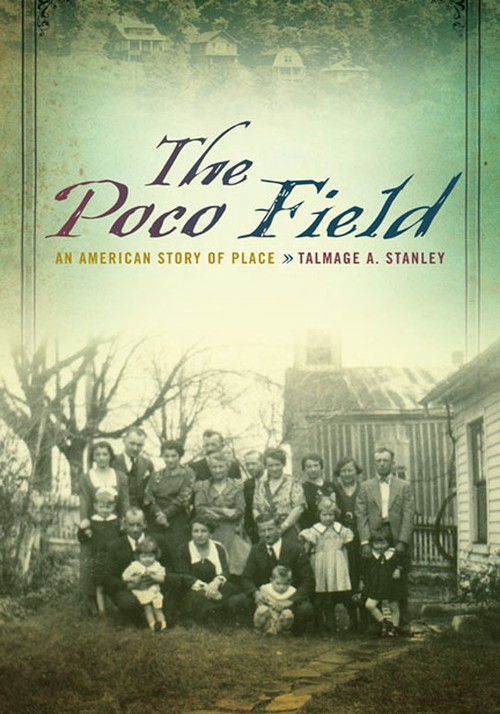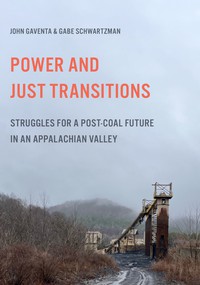
The Poco Field
Cloth: 03/26/2012
About the Book
In this beautifully written meditation on identity and place, Talmage A. Stanley tells the story of his grandparents' middle-class aspirations from the 1920s to the 1940s in the once-booming Pocahontas coalfields of southern West Virginia. Part lyrical family memoir and part social study, The Poco Field: An American Story of Place addresses a long-standing gap in Appalachian and American studies, illustrating the lives and choices of the middle class in the mid-twentieth century and delving into questions of place-based identity.Exploring the natural and built environments of the towns of Keystone, West Virginia, and Newbern, Virginia, Stanley delineates the history of conflict and control of local industry and development. Through his grandparents' struggle for upward mobility into the middle class, Stanley narrates a history that counters ideas of Appalachia as an exception to American culture and history, presenting instead an image of the region as an emblem of America at large. Stanley builds out from family and local history to examine broad structures of values and practices as they reflect and relate to place, showing how events such as the development of extensive mineworks, the ghettoization of the area's black residents, the catastrophic flooding of the Elkhorn Creek, and the fraud-induced failure of Keystone National Bank signal values that erode a place both literally and figuratively. Giving voice to activists now working to break down boundaries and assumptions that long have defined and restricted the middle class in the global economy, The Poco Field also champions the creative potential of place for reinvigorating democratic society for the twenty-first century.
About the Author
Talmage A. Stanley is the director of the Appalachian Center for Community Service and an associate professor and chair of the Department of Public Policy and Community Service at Emory & Henry College in southwest Virginia.Reviews
"Stanley shows how ambition can be incompatible with moral behavior when profit is the bottom line and power is concentrated in one industry. His work stresses the importance of a 'citizenship of place' and gives examples of promising practices to expand, enrich, and enliven local relationships."--Now & Then"Stanley masterfully weaves issues of identity with the personal story of his grandparents. . . . his work requires scholars and students of the region to think of the modern history of Appalachia in a sophisticated and interdisciplinary way."--West Virginia History
"The Poco Field brings the power of the personal to history and cultural studies, and the fields are all the richer for it."--Appalachian Journal
"Stanley sees in his family's lived experience a rich window into the middle-class aspirations and cultural understandings of not only mid-century Appalachia but also the nation as a whole. . . . Stanley's book is effective in conveying larger meanings from family history. The Poco Field brings the power of the personal to history and cultural studies, and the fields are all the richer for it."--Appalachian Journal
"Stanley's book is interesting, and it certainly makes a scholarly contribution to the literature. Anyone searching for a fresh perspective on twentieth-century Appalachia or middle-class life in the United States would do well to give it a read."--The Journal of Southern History
"What makes this work intriguing, is Stanley's critique of community values and the way he conceptualizes "place" well beyond geographic terms."--American Historical Review
Blurbs
"This genre-blending work combines biography, family and social history, ethnography, political economy, and personal observation to provide a penetrating examination of the implications of place-based practice on local and global citizenship. Through his family's own experiences, Talmage A. Stanley effectively argues that the natural, built, and social environments of a particular place can produce a way of life that is an honest response to the demands, limits, and promises of that place. The work is promising for use in Appalachian and American studies, community sociology, environmental studies, activism, and sustainable development."--Dwight B. Billings, coauthor of The Road to Poverty: The Making of Wealth and Hardship in Appalachia
"A terrific contribution to an understudied topic in Appalachian studies: middle-class culture, society, and politics. Talmage A. Stanley's compassionate depiction of a sector often simply referred to as 'local elites' or the 'managerial class' exposes a tragedy akin to that of Willy Loman in Arthur Miller's Death of a Salesman. His elaboration of the West Virginia coalfield experience as an archetypal form particular to the industrial capitalist social vision is brilliantly illuminated by fragments of his family archive."--Mary Hufford, editor of Conserving Culture: A New Discourse on Heritage





